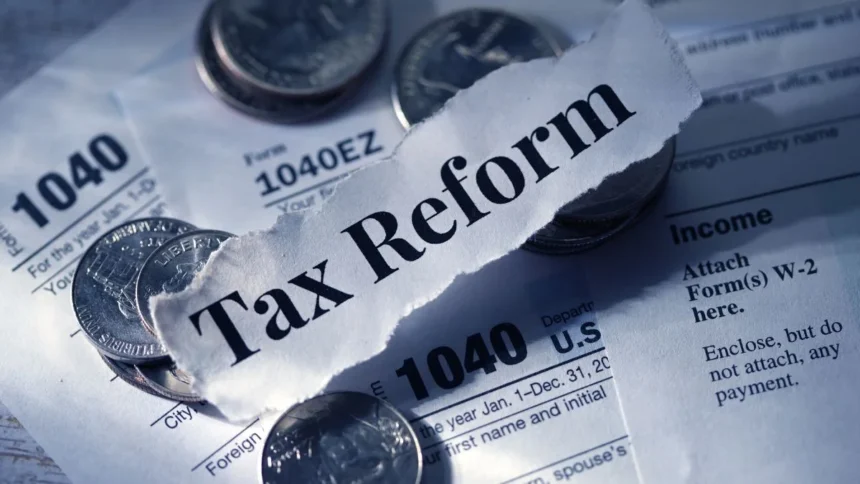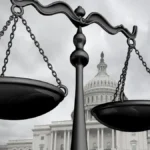Campaign finance reform is a critical and highly debated issue that shapes the landscape of American politics. It addresses the role of money in elections and aims to curb the influence of wealthy individuals, corporations, and special interest groups in the political process. As political campaigns grow more expensive, the need for campaign finance reform has become a focal point for advocates who seek to ensure a fair and transparent electoral system.
The Importance of Campaign Finance Reform
Campaign finance reform is pivotal in creating a level playing field in politics. At its core, it aims to reduce the influence of big money, which can often overshadow the voices of everyday citizens. In a democratic society, every vote should carry equal weight, yet the current campaign finance system allows wealthy donors and special interest groups to have disproportionate sway over policy decisions.
The campaign finance reform movement seeks to address these imbalances by implementing regulations that limit the amount of money individuals and organizations can donate to political campaigns. By doing so, it aims to reduce the potential for corruption and increase transparency in the political process. Reform measures such as contribution limits, public funding for campaigns, and enhanced disclosure requirements are central to the debate on how to best regulate campaign finance.
The History of Campaign Finance Reform
The history of campaign finance reform in the United States dates back over a century. The Tillman Act of 1907 was one of the first major pieces of legislation aimed at curbing corporate influence in politics, banning corporate contributions to federal campaigns. Over the years, other significant laws have been enacted, such as the Federal Election Campaign Act (FECA) of 1971 and the Bipartisan Campaign Reform Act (BCRA) of 2002, also known as the McCain-Feingold Act.
However, the landscape of campaign finance changed dramatically with the Citizens United v. FEC decision in 2010. The Supreme Court ruled that corporations and labor unions have the same free speech rights as individuals, effectively allowing them to spend unlimited amounts of money on political campaigns through independent expenditures. This decision led to the rise of Super PACs, political action committees that can raise and spend vast sums of money to support or oppose candidates, as long as they do not coordinate directly with the campaigns.
The Influence of Money in Politics
The influence of money in politics is undeniable, with billions of dollars being spent in each election cycle. Political candidates often rely on wealthy donors, corporations, and special interest groups to fund their campaigns, leading to a system where those with financial power can wield significant influence over elected officials and policy decisions. This dynamic undermines public trust in the democratic process, as many believe that elected representatives are more responsive to their donors than to their constituents.
The lack of campaign finance reform has also led to an increase in dark money, which refers to political spending by nonprofit organizations that are not required to disclose their donors. This lack of transparency makes it difficult for voters to know who is funding political advertisements and influencing elections, further exacerbating concerns about the role of money in politics.
Proposed Solutions for Campaign Finance Reform
Advocates for campaign finance reform have proposed various solutions to address the issues posed by the current system. One common proposal is the implementation of public funding for political campaigns. Public financing would reduce candidates’ dependence on large donations and encourage a broader range of individuals to run for office, thus promoting a more diverse and representative political landscape.
Another key proposal is the introduction of stricter contribution limits. By capping the amount of money that individuals and organizations can donate to campaigns, it would be possible to minimize the influence of wealthy donors and reduce the risk of corruption. Enhanced disclosure requirements are also a critical component of reform efforts, as they would ensure that all political donations are transparent and traceable, allowing voters to see who is funding candidates and campaigns.
Additionally, some advocates call for a constitutional amendment to overturn the Citizens United decision. This amendment would grant Congress and state legislatures the authority to regulate campaign spending, potentially curbing the power of Super PACs and reducing the flood of money in politics.
The Challenges of Implementing Campaign Finance Reform
Despite widespread public support for campaign finance reform, implementing changes to the current system is challenging. One of the biggest obstacles is political resistance from lawmakers who benefit from the existing structure. Many politicians are reluctant to support reforms that would limit their fundraising capabilities, particularly when facing well-funded opponents.
The legal landscape also poses significant challenges. Supreme Court rulings such as Citizens United have framed campaign spending as a form of free speech protected by the First Amendment, making it difficult to enact comprehensive reforms without infringing on constitutional rights.
Moreover, the rise of digital campaigning and online fundraising has complicated the enforcement of existing campaign finance laws. Social media platforms and digital ads have become crucial tools in political campaigns, and regulating this new frontier poses additional challenges for policymakers.
The Path Forward: A Call for Reform
The need for campaign finance reform is more urgent than ever as the cost of running for office continues to rise. Without meaningful changes, the influence of money in politics will likely continue to grow, further undermining the integrity of the electoral process and public trust in democracy.
Reforming the campaign finance system is essential to restoring faith in American democracy. By implementing measures that limit the role of big money in elections, increase transparency, and promote a fair and competitive political landscape, policymakers can help ensure that every citizen’s voice is heard.
The battle for campaign finance reform is a fight for the future of democracy, one that seeks to protect the fundamental principle of equal representation. As the debate over the role of money in politics continues, the push for comprehensive reform remains a crucial issue for voters and lawmakers alike.
Conclusion
Campaign finance reform is not just about changing the rules of political fundraising; it is about safeguarding the democratic values of fairness, transparency, and equality. By reducing the influence of money in politics and ensuring that all voices are heard, campaign finance reform can help build a more just and representative political system.
With ongoing debates and growing public support, the fight for campaign finance reform represents a critical effort to curb the power of special interests and return control of the political process to the people. Only through sustained advocacy and meaningful legislative changes can the United States move toward a more transparent and equitable electoral system.
Get more info: https://www.timelinetale.com/







